A correctly designed wooden roof must take into account the site's climatic conditions and must ensure sufficient insulation and waterproofing to improve occupant comfort inside the building.
At the same time, especially during the carpentry and assembly stages, it is important that no naked flames are used. When it comes to meeting waterproofing needs and, at the same time, safety and environmental responsibility requirements, some of the most suitable products include self-adhesive membranes from the ADESO® line and many other products designed to be cold-glued or special accessories.
The membranes made using ADESO® technology are self-adhesive dual-compound membranes that use an APP or SBS blend on the top side, and a highly self-adhesive blend on the underside of the reinforcing carrier.
They can be used on all surfaces requiring waterproofing provided they are clean, dry and free of moisture. They are particularly suitable for application on top of heat-sensitive insulating panels (e.g. expanded or extruded polystyrene, polyurethane).
The range of self-adhesive membranes includes membranes with specific fire test certification BROOF (t2) ENV 1187 Test 2 for use when photovoltaic systems are installed on the roof.
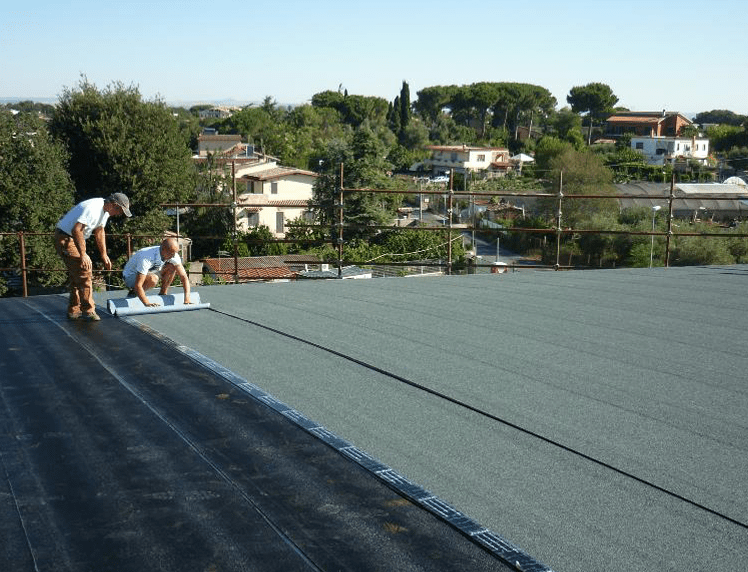
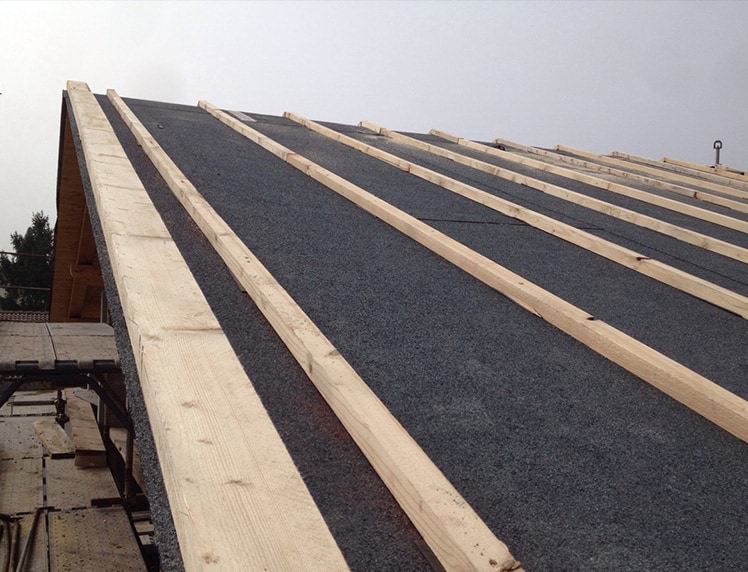
The advantages of self-adhesive membranes are:
- Instant adhesion between adjacent membranes, even at low temperatures;
- Safe application as there is no torching involved;
- No use of adhesives or mastics;
- Short application times;
- Lower installation costs;
- Glued on quickly, cleanly and easily;
- Impressive sealing at laps;
- The structure is immediately waterproofed;
- No fumes, odours or noise produced during application.
Most membrane application situations will require the use of a special primer to stop dusting and saturate open pores in the substrates.
Water-based bituminous primers are particularly suitable for use on wooden roofs as they are non-flammable and are not hazardous for the fitter. Being odourless, they are also perfectly suitable for use in urban settings and populated areas.
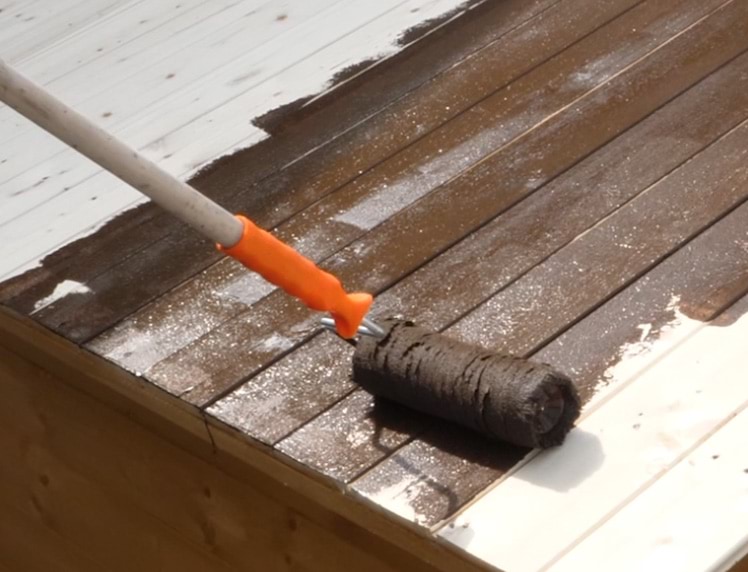
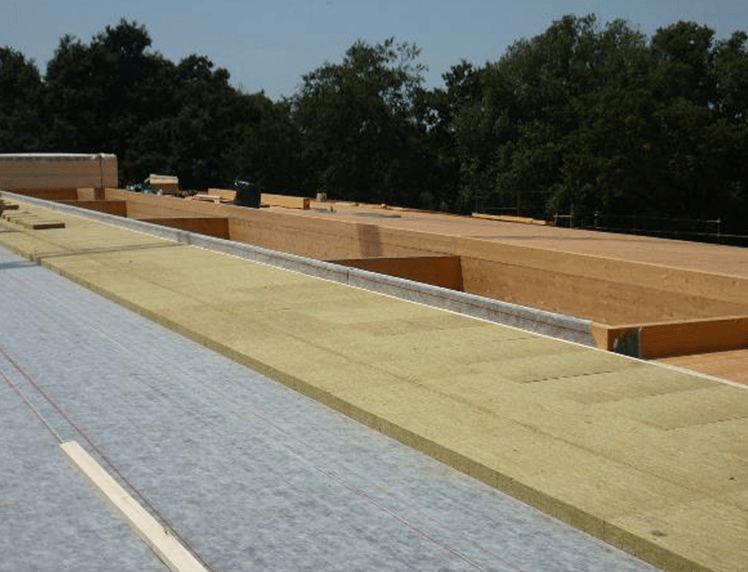
Like any type of roof, a wooden roof needs an insulation package.
The comprehensive Polyglass range includes all the main types of insulation, such as rock wool, expanded polystyrene, extruded polystyrene and polyurethane with excellent heat-insulating properties.
These different materials can be factory laminated with a membrane (smooth, mineral-surfaced, reinforced with polyester or fibre glass mat carrier) to allow for easier fitting.
As an alternative to traditional roof tiles, POLYTEGOLA N and POLYTEGOLA PLUS combine the waterproofing properties of the roof with quick and cost-efficient installation and an attractive look.
POLYTEGOLA N and POLYTEGOLA PLUS are asphalt shingles that meet European standards, comprising a fibre glass mat carrier impregnated with blown bitumen and faced with coloured ceramic-coated basalt granules on the upper side.
POLYTEGOLA N comes in rectangular 3-tab strips and in 6-tab beaver tail strips.
POLYTEGOLA PLUS is a high-quality, high-performance product; suitable for application on residential/commercial and industrial buildings, as well as for roofing gazebos, wooden sheds and lean-tos, and for renovation work.
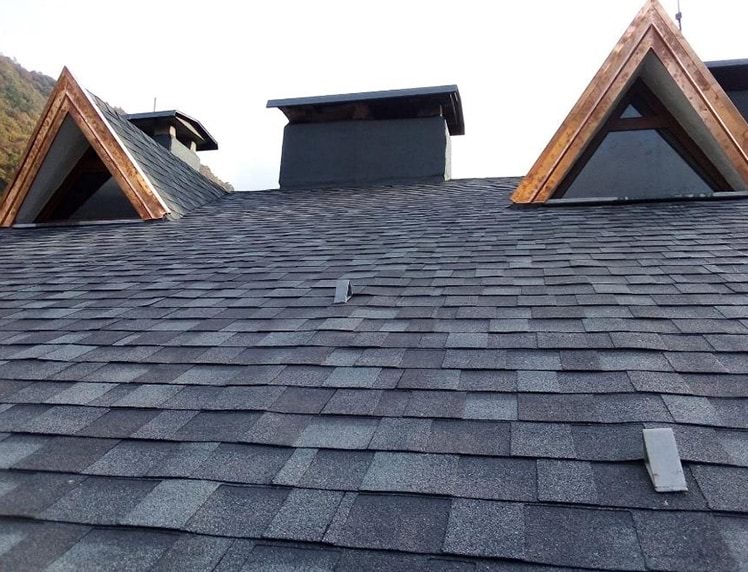
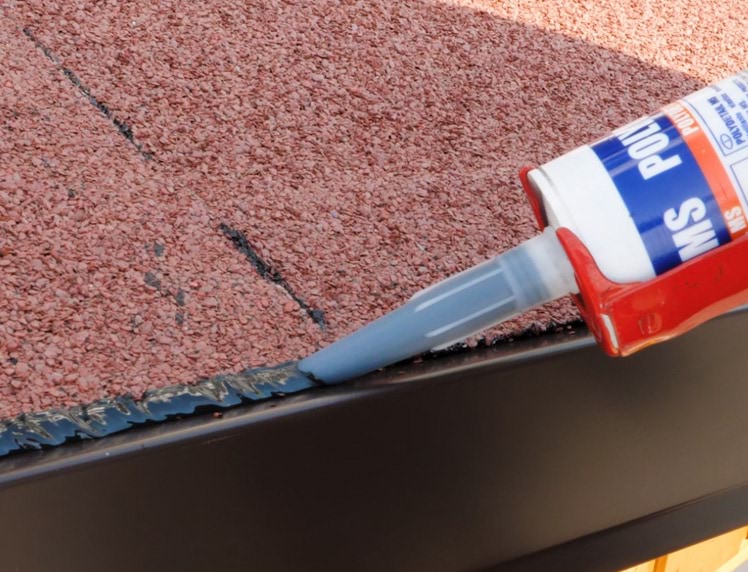
A number of accessories are required for correct installation on pitched roofs.
BUTYLSTRIP is a self-adhesive butyl tape faced with aluminium foil reinforced with a polyethylene film. It seals and joins other materials, such as glass, steel, Plexiglas, wood, polycarbonate and aluminium.
POLYGLUE PU 2K is a 2-part polyurethane adhesive for gluing insulating panels and synthetic waterproof coverings like Mapeplan T Af. It stands out for its fast application (setting) and excellent sealing.
POLYSEAL is a solvent-based elastomeric-bituminous sealant for gluing Polytegola N details and for sealing technical parts when producing waterproof polymer bitumen built-up systems.
POLYDETAIL MS is a one-pack MS Polymer sealant designed for sealing, repairing and installing technical features such as skylights, guttering, flues, chimneys, drains, etc.. It can also be used for sealing the top of bitumen membrane vertical turn-ups between the metal profile (membrane retainer) and concrete wall.
POLYTAPE FOAM is a closed-cell expanded polyethylene foam sealing tape, self-adhesive on one side, for sealing tile underlay membranes at the point where battens are fastened on pitched roofs.